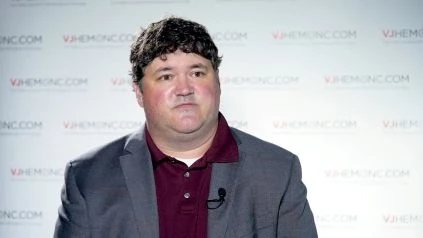CAR T-cells have the potential to revolutionize the field of hematological oncology, however despite impressive efficacy data from CAR T products, some patients develop resistance, have poor outcomes, or high toxicity. As John Rossi, MS, from Kite Pharma Inc., Santa Monica, CA explains in this video, identifying the characteristics of these patients is crucial to informing treatment planning for specific patient groups. He discusses how identifying patients at risk of toxicity can mean high-risk patients are placed under surveillance, while low-risk individuals are able to receive therapy on an outpatient basis. He highlights how features of the tumor microenvironment and immune landscape might predict treatment outcome, and how understanding the specific features of the CAR T product can further improve identification of poor outcome patients. This type of research is crucial to improving clinical disease management and CAR T-cell therapy outcomes.
[the_ad id="32629"]

